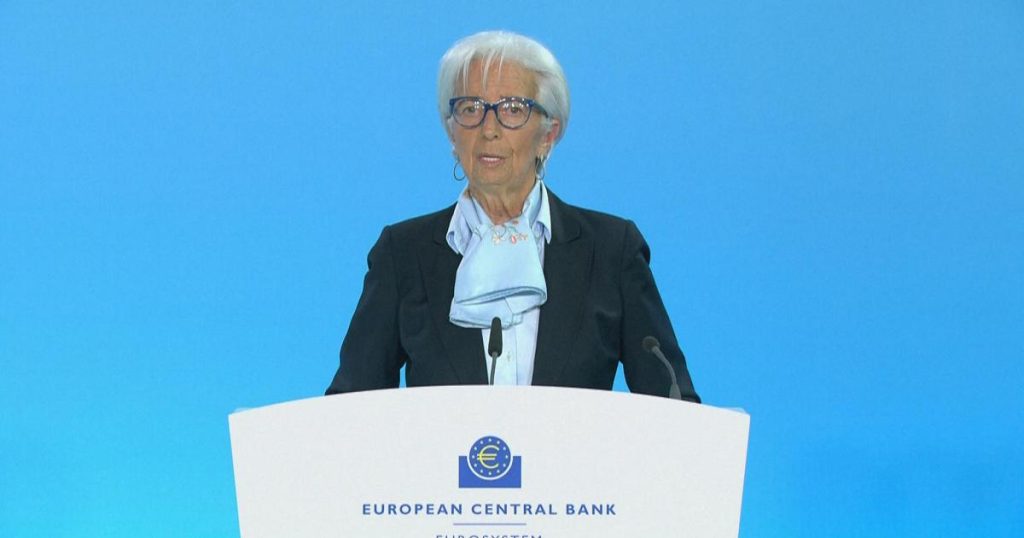The Governing Council of the European Central Bank (ECB) has decided to keep the three reference interest rates unchanged. The interest rates on main refinancing operations, marginal lending facilities, and deposit facility will remain at 4.50%, 4.75%, and 4.00% respectively. The ECB stated that it is ready to adjust its tools to achieve the 2% inflation target. If the Council’s assessment of inflation prospects, core inflation dynamics, and the transmission of monetary policy increases its certainty that inflation is steadily converging towards the target, it would be appropriate to reduce the current level of monetary policy restriction.
In the ECB’s statement, it was highlighted that inflation has continued to decrease, particularly due to lower food and goods prices. Core inflation measures are mostly declining, wage growth is gradually slowing down, and companies are offsetting some of the labor cost increases with their profits. Despite tight financing conditions and past interest rate hikes impacting demand and contributing to the decline in inflation, strong internal price pressures are keeping service inflation high. The Governing Council also mentioned that future decisions will ensure that reference rates remain sufficiently restrictive as long as necessary.
Regarding debt purchases, the Governing Council intends to continue fully reinvesting principal repayments from maturing securities under the Pandemic Emergency Purchase Programme (PEPP) in the first part of 2024. In the second part of the year, it plans to reduce the PEPP portfolio by an average of 7.5 billion euros per month and end reinvestments under the program by the end of 2024. The Council will continue to flexibly reinvest principal repayments from maturing PEPP securities to counter risks to the monetary policy transmission mechanism related to the pandemic. Additionally, the Council will regularly reassess how targeted longer-term refinancing operations and repayments contribute to the orientation of monetary policy.
Following the ECB’s decision to maintain interest rates unchanged, European stock markets showed slight declines. The Milan and Madrid stock exchanges dropped by 0.8%, while Frankfurt fell by 0.7%. London and Paris were more cautious, with decreases of 0.3%. The spread between Italian and German 10-year bonds marginally increased to 139 basis points, with the euro slightly lower against the dollar at 1.07. Overall, the ECB’s decision had a minor impact on European stock markets, with some exchanges experiencing slight declines while others remained relatively stable.
In conclusion, the ECB’s decision to keep interest rates unchanged and readiness to adapt its tools to reach the inflation target reflect the central bank’s commitment to supporting economic stability and growth in the Eurozone. The focus on inflation dynamics, wage growth, and financing conditions highlights the importance of closely monitoring these factors to make well-informed policy decisions. Additionally, the plan to continue reinvesting principal repayments from certain debt securities and assess the impact of targeted lending operations demonstrates the ECB’s strategic approach to managing monetary policy effectively. Despite some slight fluctuations in European stock markets following the announcement, the overall tone indicates a measured response from investors to the ECB’s latest updates.


